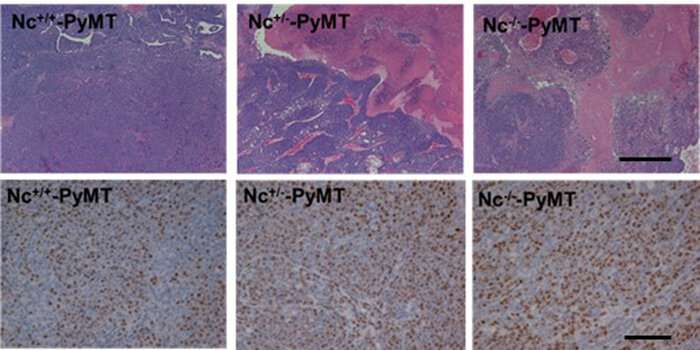Source: Thailand Medical News Sep 20, 2019 5 years, 7 months, 1 week, 3 days, 5 hours, 26 minutes ago
Researchers from Louisiana State University, New Orleans School Of Medicine has found that metformin, a commonly prescribed
drug for Type 2 Diabetes, is also effective in treating cancers that lack a protein called Nischarin.
Credit:LSU
The
medical researchers discovered Nischarin, a protein involved in many biological processes that also acts as a tumor suppressor. Much of the team’s research on this newly discovered protein has been focused in breast
cancer.
In the latest study, the reseach team’s lab showed that disruption of the Nischarin gene delayed mammary gland development, enhanced tumor growth and metastasis, and also decreased activation of an enzyme called AMPK.
AMPK plays a critical role in metabolism and is considered to be a therapeutic target for metabolic diseases and even some cancers.
Metformin's precise mechanism of action or pathway remains unclear, but it appears to work at least partly through the activation of AMPK. The team is extending its research inorder to discover the actual mechanism of this.
Dr Suresh Alahari, Professor of Biochemistry and Genetics at LSU commented in a phone interview with
Thailand Medical News "The clinical documentation thatdiabetic patients on a metformin regimen display reduced risks of developing
cancer poses the tantalizing possibility that this approach to treating
cancer might prove to be an effective and unrealized therapeutic opportunity."
The
medical research team in this study demonstrated that
metformin activates AMPK and has a strong inhibitory effect of growth on tumors that do not express functional Nischarin, suggesting metformin has a great therapeutic value in Nischarin-lacking tumors. The findings are published in the International Journal of
Cancer.
The team also found that Nischarin-deleted tumor cells had lower AMPK activity than Nischarin-positive cells.It was found that metformin treatment activated AMPK more efficiently in Nischarin-deleted animal models, and metformin suppressed tumor growth of Nischarin-deleted animal models.
Collectively, the data suggest that Nischarin disruption promotes breast tumor development, AMPK signaling is important for Nischarin-mediated suppression of breast tumors, and activation of AMPK by metformin suppresses breast tumor growth in Nischarin-animal models.
These news findings have added clinical significance because Nischarin expression is frequently reduced in human breast
cancer, especially triple negative breast cancers, and is associated with reduced long-term survival.
The discovery that the effectiveness of certain drugs, such as metformin, are influenced by the level of Nischarin expression could help identify specific patients in whom such a treatment protocol involving metformin might prove beneficial.
Ultimately Nischarin expression could serve as a biomarker to help inform decisions in management by identifying a subset of patients most likely to benefit from AMPK activator therapies,enhancing the role of precision medicine.
Metformin is gradually being labelled as a wonder
drug as over the last few years, lots of emerging studies have shown that it has varied beneficial roles not only in
diabetes and
cancer but even other ailments and diseases. There are already studies indicating its preventive role in colon
cancer as well.
Reference:
Shengli Dong et al, Knockout model reveals the role of Nischarin in mammary gland development, breast tumorigenesis and response to metformin treatment, International Journal of Cancer (2019). DOI: 10.1002/ijc.32690
